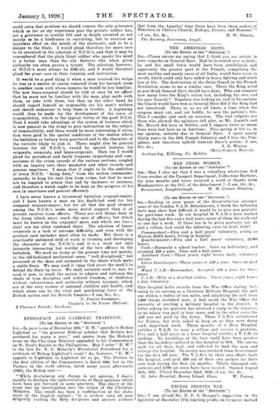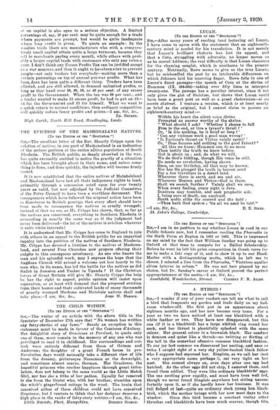EXCESS PROFITS TAX. [To THE EDITOR OF THE " SPECTATOR."1
Sze,--T am afraid Mr. If. F. S. Morgan's suggestion in the Spectator of December 27th limiting profits on turnover instead of on capital is also open to a serious objection. A limited percentage of, say, 10 per cent. may be quite enough for a Erode where payments are prompt, but would be quite inadequate where long credit is given. To quote an example: In the woollen trade there are manufacturers who with a compara- tively small capital attain quite-a large turnover, because they sell to merchants paying every Month, while others with prob- ably a larger capital trade with customers who only pay twice a year. I don't think any Eicess /quilts Tax can be justified except RS a war niedsure, and then it ought to htivebeen atax to preVent people—not only traders but everybody—making more than a certain percentage on top of annual prerwar profits. What has beekdoite has been quite a different thing. Teetders have been allotted, and are still allowed, to demand unlinlited profits, so long as they hand over 50, 60, 80, or 40 per cent. of any excess Profit to the Government. When the tax was 80 per cent., and a trader wanted to Make £1 excess profit, holed to put on 25— .t4 for the Government and £1 hit himself. What we want is a quick return to normal conditions, then ordinary competition will qUickly redure fancy profits and prices.—I am, Sir, &c.,
ED. ESCIDDI.
High Garth, North Hill Road, Headingleg, Leeds.











































 Previous page
Previous page